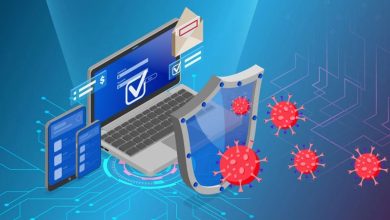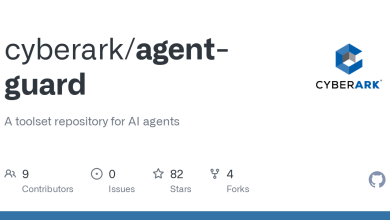Data Management and Security Are Key To Malaysia’s Digital Transformation Plans

by Sandy Woo, Country Director, Veritas Technologies Malaysia
 The pressure is on governments everywhere to invest in science and technology as people demand more efficiency and better quality public services – and Malaysia is no exception. In 2021, the government launched the ambitious “Malaysia Digital Economy Blueprint”, as part of a broader plan to transform the country into a digitally driven, high-income, regional leader by 2030. According to the blueprint, Malaysia is now in its second phase, focusing on driving digital transformation and inclusion from 2023 to 2025.
The pressure is on governments everywhere to invest in science and technology as people demand more efficiency and better quality public services – and Malaysia is no exception. In 2021, the government launched the ambitious “Malaysia Digital Economy Blueprint”, as part of a broader plan to transform the country into a digitally driven, high-income, regional leader by 2030. According to the blueprint, Malaysia is now in its second phase, focusing on driving digital transformation and inclusion from 2023 to 2025.
Although the country has made progress, more needs to be done to unlock value from digital transformation efforts. In fact, in 2022, Malaysia’s Digital Competitiveness ranking fell four places to 31, signalling a need for better digital infrastructure and regulation, data governance and digital attitudes to unlock better value from public services.
More opportunities will come, following the Malaysia Budget 2024 announcement. We look forward to how CyberSecurity Malaysia (CSM) will be utilising the RM60 million allocation to strengthen the national cybersecurity ecosystem.
The article will take a granular look at data management, migration, and security and address the challenges that come with it.
Examining Data Management, Storage and Security Challenges
For the government, data is critical—it must be accessible, yet protected. They need data insights to provide services, make decisions on the battlefield, deliver healthcare, maintain critical infrastructure and more. And although data is often the most strategic asset, data volume and complexity make it difficult to leverage. If anything, vast volumes of data generated create a storage problem that conflicts with national sustainability efforts.
The challenges don’t end there. Once governments decide on a digital transformation approach, they grapple with duplicated data arising from legacy systems and inefficient data management protocols, as well as cybersecurity risks.
Indeed, given the value and volume of data held by Governments, they are a prime target for data-related attacks—from ransomware and malware to unexpected weather incidents, insider threats and more. In January 2023, Malaysia’s own national defence networks experienced a series of cyber-attacks that were fortunately detected early enough to prevent any significant compromise. But attackers only have to get it right once.
Given all of this, governments are struggling with where to start with data management across multiple platforms. Some are having to balance the push for IT modernisation and cloud migration with demands for data governance and threat prevention. Others lack the visibility into their data to even get started.
Bring In Experts to Achieve Data Integrity
Modernising data centres and driving efficiencies at lower costs while being environmentally conscious is as challenging as it sounds. Any robust platform should address three key areas:
- Availability — Ensure 24/7 access to meet the mission, no matter where your data resides.
- Protection — Protect and recover sensitive information as it moves through the data lifecycle.
- Insights — Understand data better to make more effective decisions toward your mission.
Data protection solutions should ensure data is protected at scale and is always recoverable no matter where it lives. This means choosing solutions that help government agencies pinpoint where their sensitive data lies and who has access to it, so they can address potential risks, as well as complex government requirements.
Additionally, having the right data management and security specialists can help to effectively address data replication and cybersecurity risks. These experts conduct audits and comprehensive data assessments to ensure a smooth and sustainable data migration process while reducing massive storage requirements. During the migration process, their stringent access controls, encryptions and multi-factor authentication strategies can ensure data confidentiality and integrity. Finally, data management experts can help implement monitoring mechanisms to identify and address any potential data replication within the cloud environment.
Digital transformation at the government level is serious business. With the volume of data and the number of platforms, it can be overwhelming to know where to start. Collaborating with multiple departments and agencies, using the right solutions, and working with industry experts will be key to delivering the greatest impact.




